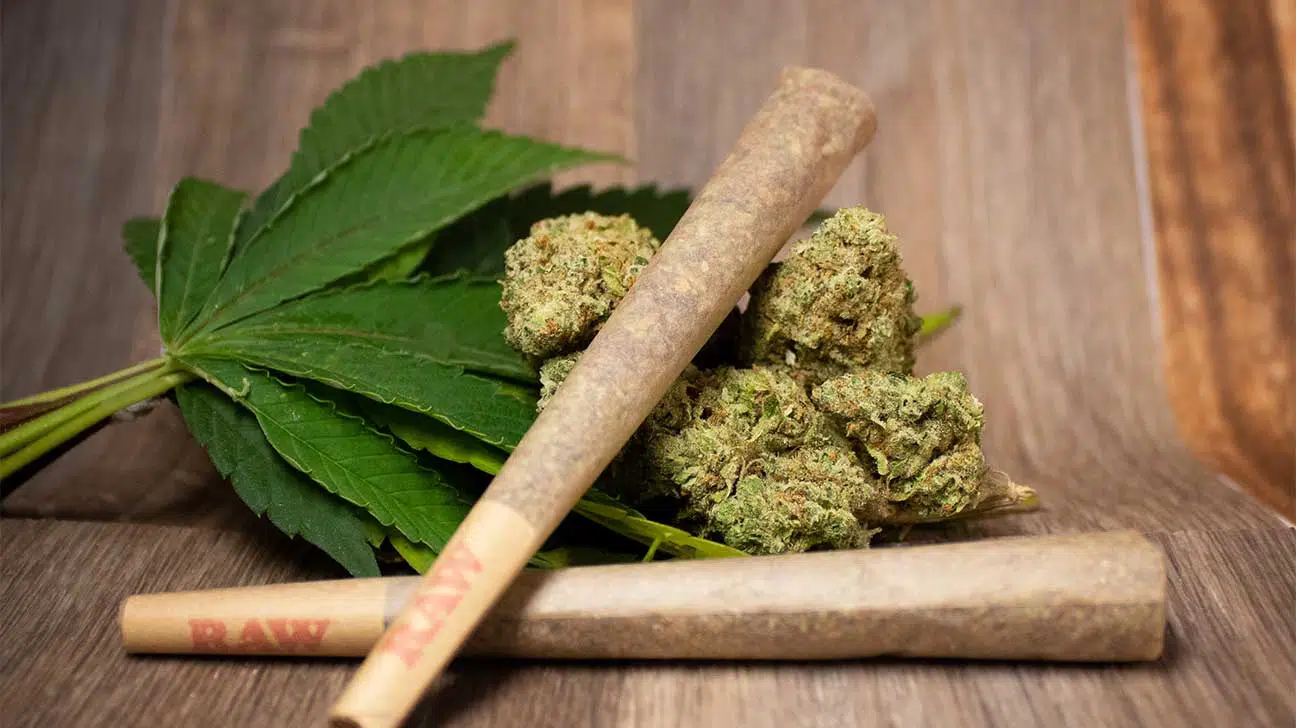
Delta-8 tetrahydrocannabinol (THC) is a chemical compound that is similar molecularly to the psychoactive ingredient in marjiauana — delta-9-tetrahydrocannabinol (THC).
Delta-9 is the psychoactive compound in marjiuana — also known as cannabis, pot, or weed — that is responsible for producing the euphoria, or “high,” associated with the drug.
But delta-8 and delta-9 are not the same. Although they have a similar chemical structure, they differ in their effects, acceptable uses, and their legal status in the United States.
Find out more about marijuana abuse.
What To Know About Delta-8
Delta-8 is a cannabinoid that produces psychoactive effects similar to marijuana. However, the effects of delta-8, including the “high” associated with cannabis, are generally milder.
Commonly reported effects of delta-8 include:
- relaxation
- feelings of happiness (euphoria)
- mild pain relief
- increased appetite
- nausea relief
What Are The Side Effects Of Delta-8?
Adverse effects of delta-8 use can occur. These may be similar to side effects experienced from the use of marijuana.
Side effects of delta-8 may include:
- anxiety
- red eyes
- paranoia
- dry mouth
- impaired coordination
- slowed reaction times
- fast heart rate
- nausea/vomiting
- memory loss
What Does Delta-8 Look Like?
Delta-8 is derived from the hemp plant. However, it naturally occurs in hemp plants only in small amounts.
Because of this, most commercial delta-8 products are synthesized from hemp-derived cannabinol (CBD) through a chemical conversion process.
Today, delta-8 is sold in a variety of forms, available for purchase online, or over-the-counter at convenience stores, vape stores, and other retailers.
Common delta-8 products include:
- gummies
- tinctures
- candies
- joints
- edibles
- vaping pens
- oils
- beverages
Will Delta-8 Get You High?
Delta-8 products may cause mild euphoric effects, similar to marijuana. For this reason, delta-8 is sometimes referred to as “marijuana-lite” or “diet weed.”
After taking delta-8, you may feel more relaxed, or buzzed. However, a single dose of delta-8 is unlikely to cause the kind of high that is associated with cannabis products.
Is Delta-8 Legal?
Due to what some experts describe as a “legal loophole,” delta-8 is legal in much of the United States, under the Agriculture and Nutrition Improvement Act of 2018.
That federal law, known as the 2018 farm bill, legalized hemp and hemp products that contain less than 0.3 percent of delta-9 THC — the psychoactive ingredient in marijuana.
Under that bill, hemp derivatives — like cannabinol (CBD) — are legal to farm in the United States. Delta-8, however, is not explicitly named in that bill, making its legality a gray area.
In recent years, some states — including Colorado, New York, and Michigan — have moved to either restrict or ban delta-8 products, due to growing concern about potential risks of use.
Is Delta 8 Safe?
While the safety of delta-8 is the subject of ongoing study, a broader concern today is that products legally marketed as “delta-8” in the United States are poorly regulated.
They are not evaluated by the U.S. Food & Drug Administration (FDA), nor has their safety for use been approved by the FDA, which oversees the regulation of controlled substances.
Because of this, there is growing concern about products legally marketed as “delta-8” containing impurities, or being manufactured with harmful chemicals.
What Are The Risks Of Delta 8 Use?
According to the FDA, there have been increasing reports of drug poisoning linked to the use of delta-8 products, in part due to variation in what they actually contain.
Products sold as “delta-8” in stores aren’t regulated by the FDA. They may contain other synthetic byproducts, as well as variable concentrations of delta-8.
From December 2020 to February 2022, the FDA received 104 reports of adverse events linked to delta-8. Fifty-five percent of cases required medical intervention or hospital admission.
Adverse side effects reported included:
- hallucinations
- confusion
- dizziness
- tremor
- vomiting
- anxiety
- loss of consciousness
According to the FDA, products sold as “delta-8” may also sometimes be improperly labeled, or inaccurately claim medical or therapeutic benefits not yet substantiated by research.
Why Do People Use Delta-8?
Some people may use delta-8 for its milder, marijuana-like effects.
Because it is legal in much of the U.S., it may be easier to access in states where cannabis use and possession is still criminalized.
Can Delta-8 Be Misused?
Like any other prescription or illicit drug, delta-8 THC products can be subject to drug misuse.
Signs of misuse might include:
- excessive delta-8 THC product use
- mixing it with other drugs for stronger effects
- increasing delta-8 use over time
- continuing to use it despite negative consequences
- feeling unable to control or cut down on your delta-8 use
If you or a loved one is abusing delta-8, it may be time to consider seeking drug abuse treatment, such as drug counseling or individual therapy.
Get Help For Drug Abuse Today
Our team at AddictionResource.net can help connect you or a loved one with resources for drug abuse support or treatment.
Call our helpline today to learn more about delta-8 abuse and treatment options.
Addiction Resource aims to provide only the most current, accurate information in regards to addiction and addiction treatment, which means we only reference the most credible sources available.
These include peer-reviewed journals, government entities and academic institutions, and leaders in addiction healthcare and advocacy. Learn more about how we safeguard our content by viewing our editorial policy.
- Cleveland Clinic — What Is Delta-8?
https://health.clevelandclinic.org/what-is-delta-8/ - State of Michigan: Marijuana Regulatory Agency — Delta-8 Information
https://www.michigan.gov/mra/consumer-connection/delta-8-information - U.S. Food & Drug Administration (FDA) — 5 Things to Know about Delta-8 Tetrahydrocannabinol - Delta-8 THC
https://www.fda.gov/consumers/consumer-updates/5-things-know-about-delta-8-tetrahydrocannabinol-delta-8-thc

